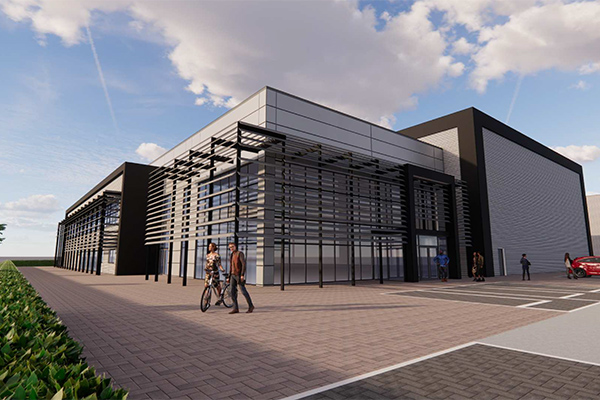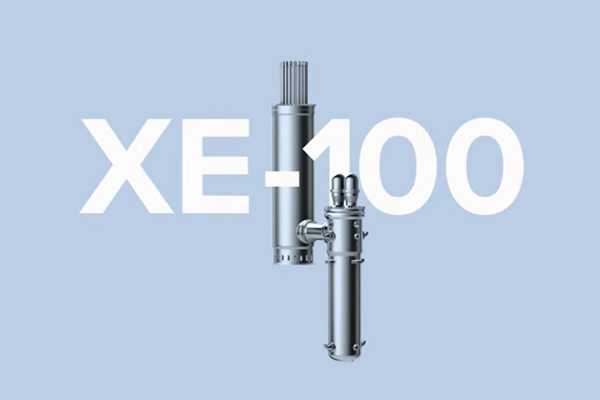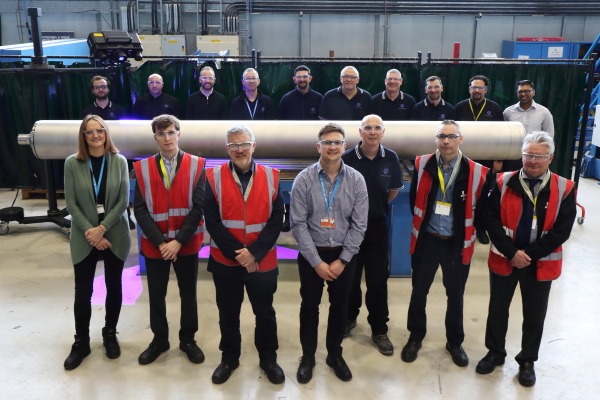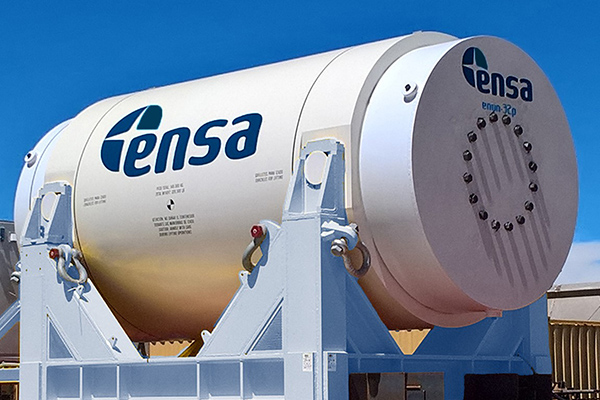Derby City Council and the Nuclear AMRC have launched a bid for government funding to establish a new advanced manufacturing research centre and boost jobs and business growth in the city.
Update: government funding was confirmed on 4 August.
The £20 million initiative would create a new permanent home on Derby’s Infinity Park for Nuclear AMRC Midlands, creating 70 jobs and helping to reboot the local economy after the coronavirus crisis.
The move follows the success of a pilot project over the past 18 months, with the Nuclear AMRC team operating from workshops and offices within the iHub facility on Infinity Park.
The proposed new centre would also become a base for the University of Derby’s Institute for Innovation in Sustainable Engineering (IISE), which has developed an international reputation for innovation in design, manufacturing, product lifecycle management and the application of new and smart materials.

The project is viewed as a key part of Derby’s post-Covid economic recovery strategy, and would provide businesses with access to cutting edge research and development facilities to help them diversify, grow and create new jobs.
The initiative is being supported by Derby City Council, the D2N2 Local Enterprise Partnership, the University of Derby and Nuclear AMRC. The funding bid has been submitted to the Ministry of Housing, Communities and Local Government.
Andrew Storer, CEO at the Nuclear AMRC, said Derby was a perfect location to expand the organisation’s operations.
“Derby already has a base in civil nuclear through Rolls-Royce, with whom we work as part of the UK small modular reactor consortium,” he said. “We are anticipating increased investment into clean energy and low-carbon technologies, which can play a significant role in helping the city and region rebound from the pandemic slowdown and deliver sustainable growth for decades to come.
“We have initiatives in place to support the wider supply chain and help them capitalise on opportunity. We also hope to support diversification in sectors such as aerospace and automotive.”
Although the Nuclear AMRC’s focus is nuclear, the organisation also considers how the technologies it is developing can be applied in other high-value industrial sectors.
“We have been working with SMEs to ensure they are ready to work with the nuclear sector, engaging with schools to increase understanding of the nuclear industry and interest in engineering generally, and collaborating closely with the region’s universities,” Storer said.
Professor Warren Manning, Provost for Innovation and Research at the University of Derby, said: “From the university’s perspective, this presents an exciting potential opportunity. The new base would provide the space for greater collaboration between IISE and Nuclear AMRC and possible co-location there too.”
The institute has built a successful track record of delivering projects to businesses, both regionally and nationally, and has also established a number of strategic partnerships with institutions across Europe, the US and Asia. It offers research, innovation, technical expertise and project support in advanced manufacturing, computational modelling of materials and structures, novel materials and life cycle management and data science
IISE includes a Rail Research and Innovation Centre to support collaborative research and innovation projects with local rail supply chains. It also leads the DE-Carbonise Project, offering comprehensive support to SMEs who want to reduce their carbon emissions in operations, production and supply chain.
Councillor Matthew Holmes, Deputy Leader of the Council and Cabinet Member for Regeneration, said the project was a key part of the city’s economic recovery strategy and would help local companies to diversify and grow.
“Derby has been a world leader in innovation for the past 300 years,” Holmes said. “We want to ensure that our businesses are well-placed to benefit from the development of new processes and particularly new, clean technologies that will help the UK achieve net zero emissions by 2050.”






